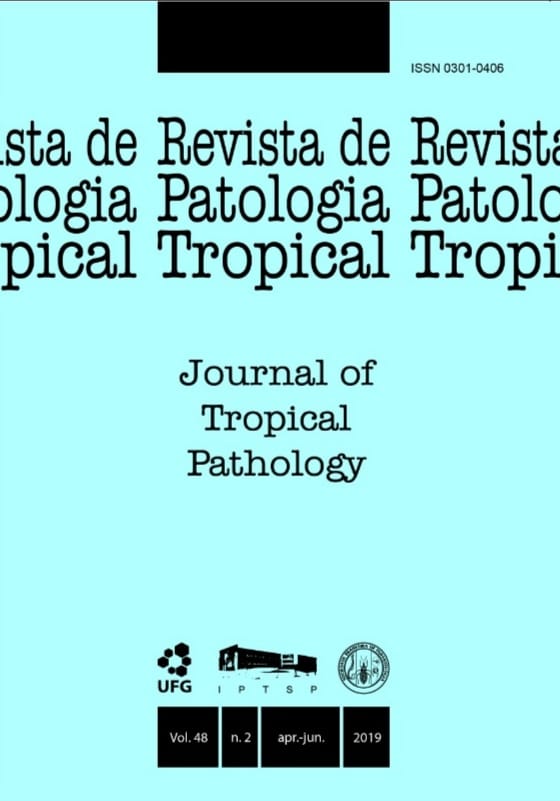NASAL COLONIZATION BY GRAM-NEGATIVE BACTERIA IN DENTAL SURGEONS: INTERFACES BETWEEN PREVENTION AND CONTROL MEASURES
DOI:
https://doi.org/10.5216/rpt.v48i2.57880Resumo
The work conditions of dental surgeons (DS), associated with low compliance to precautionary standards, often lead to the colonization and dissemination of infectious agents. To assess the epidemiological and microbiological aspects of nasal colonization by Gram-negative bacteria in DS while teaching (dentistry teachers). The data were collected by application of a questionnaire and a nasal swab. The biochemical identification, the susceptibility profile and the detection of ?-lactamases were carried out in Vitek 2 compact®. 41 (77.3%) DS participated in the study, nine of them (22.0%) presented nasal colonization by Enterobacteriaceae, the participants were predominantly men (27/65.9%), over 50 years of age (24/58.5%). All of
them confirmed using procedure gloves and a surgical mask while attending patients, with frequent (95.5%) hand washing although a statistical difference was found regarding personal habits (p=0.03). Enterobacter aerogenes (60.0%) was the most prevalent species, followed by Citrobacter koseri (20.0%). The intrinsic production of AmpC ?-lactamase by E. aerogenes species, which is multiresistant to antimicrobials, was present in the nasal cavity of 14.6% of the DS. There were high levels of nasal colonization by Enterobacteriaceae in teaching DS (22.0%), 14.6% had been colonized by multiresistant microorganisms and the results were
associated with inadequate personal habits.
Downloads
Downloads
Publicado
Como Citar
Edição
Seção
Licença
The manuscript submission must be accompanied by a letter signed by all authors stating their full name and email address, confirming that the manuscript or part of it has not been published or is under consideration for publication elsewhere, and agreeing to transfer copyright in all media and formats for Journal of Tropical Pathology.

